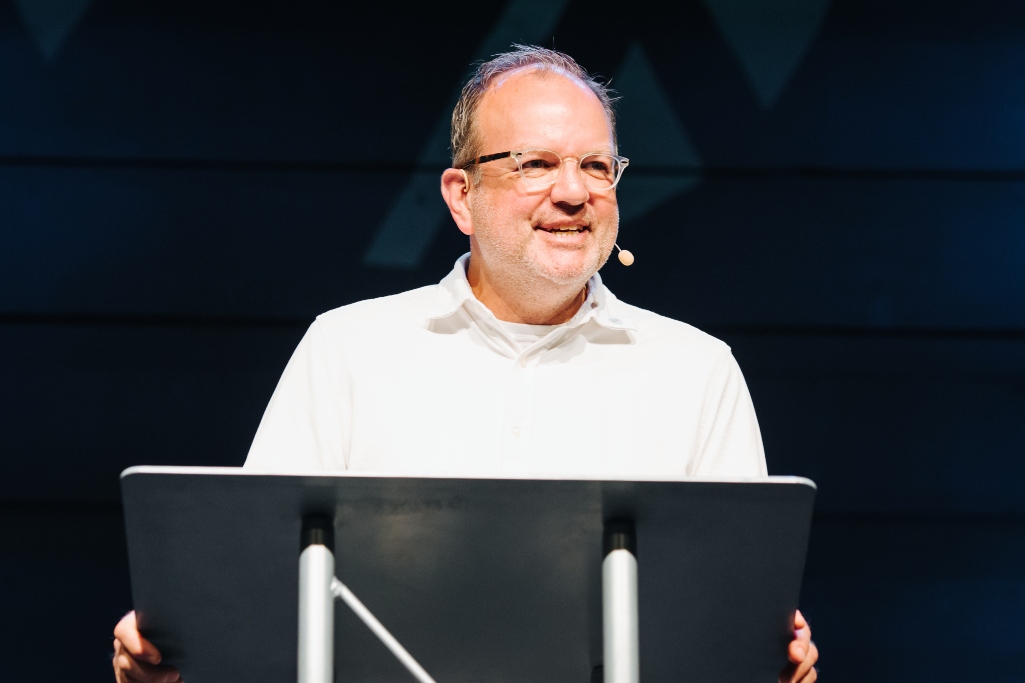Tony Rose says it’s unlikely he would have dialed 988, the new national Suicide and Crisis Lifeline he commends today, had it been around when he began battling depression as a young pastor 30 years ago.
“As most Christians and especially pastors going through depression, I still would have been very hesitant to call it,” he told Baptist Press (BP) days after the new number was activated nationwide July 16. “But knowing what I know now, I would be extremely grateful for it.
“I know the life-threatening nature of the suffocating darkness of depression,” said Rose, a retired pastor who counsels and coaches pastors as a Send Relief relational leadership trainer.
Jeremiah Johnston, associate pastor of apologetics and cultural engagement at Prestonwood Baptist Church in Dallas, commends the new 988 number for its ease of use. He knows the importance of quick memory in crisis situations, augmented by the night he called 911 and couldn’t remember his home address.
“Abel, our first born triplet, was having trouble breathing. We got on the phone with our pediatrician. It was the middle of the night. We were worried he had COVID. He couldn’t breathe. We put him in the shower,” Johnston recalled. “And even with that intervention he still was unable to breathe. I pick up the phone. I dial 911. And they ask me for my address, even though I’m calling from my cell phone, and I was blanking. What is my home address? And I’ve lived here for five years.
“It was in the middle of the night. These crises happen,” Johnston said. “And when someone is in immediate danger of hurting themselves or harming themselves, we need a 911. I could remember 911 when I was having a challenge with my little guy—I think he was 5 years old—but I couldn’t remember my home address.”
Dialing or texting 988 automatically connects callers to the National Suicide Prevention lifeline network of services with greater ease than dialing the traditional 1-800-273-8255, which still works. Callers are connected with a Lifeline counselor at the crisis center geographically closest among a network of 200, according to 988lifeline.org.
Both Rose and Johnston encourage pastors to be familiar with the 988 number and the services it provides in locations across the nation. The number should be the first reference before calling police, who are not always trained in handling mental health emergencies, Rose said.
“Though, most of the time they do a great job, they’re not trained for this,” he said of police officers. “Now that we have this, [people in crisis] will get directly connected to somebody equipped to deal with it on the phone. And as is often the case in mental illness and crises, a telephone call and a contact can be the difference between life and death.”
988 is a government-driven initiative that Johnston affirms as an example of the government working properly. He encourages the number’s widespread use.
“I want to encourage believers; we should all save this number in our contacts as the 988 suicide prevention line. We should literally have it saved in our contacts of our phone,” Johnston said. “It’s so helpful to me because I’m out there, and I speak on the frontlines as an apologist, as a pastor and Christian thinker. And so many people don’t even know who to call for help. And so they get paralyzed with silence or a question.”
Johnston has called the number to familiarize himself with the service, and encourages others to do the same.
“These individuals on the other ends of the phones are saints,” he said, “and they would love to simply advise you” on the services available when someone needs to be referred.
Rose encourages pastors not to hesitate in using the service for personal edification. The 63-year-old was 32 when he first sought help, he told BP, and has long advocated for mental healthcare.
“I mean, who does the pastor really want to talk to about his own depression? That’s one of the dilemmas we still face, is the taboos that go with it,” he said. “And I thought once I went through it, it would be over with. It’s been my constant off-and-on companion since then. It’s been the harshest thing I’ve been through, but sometimes God’s harshest teachers are His best teachers.”
(EDITOR’S NOTE – Diana Chandler is Baptist Press’ senior writer.)


